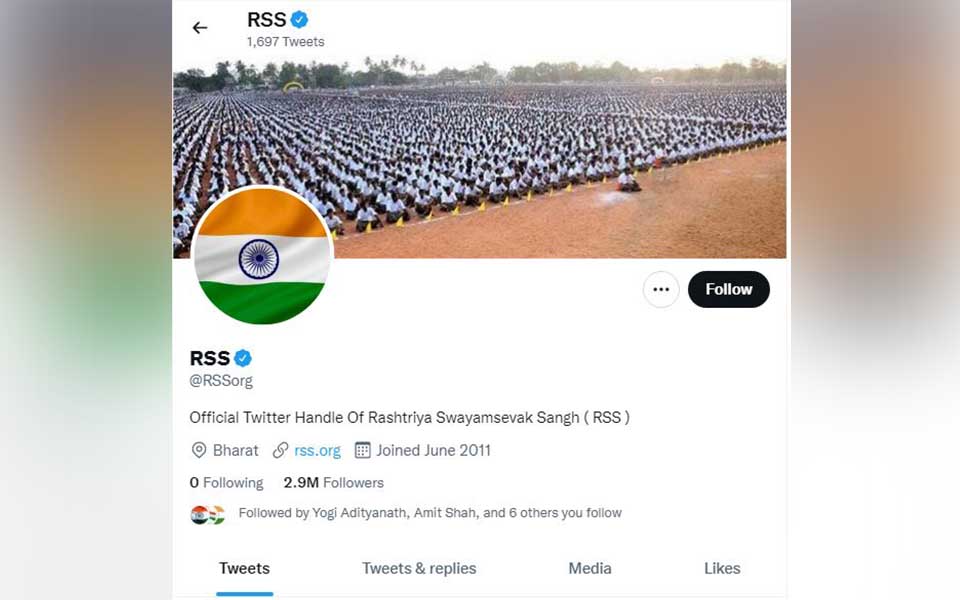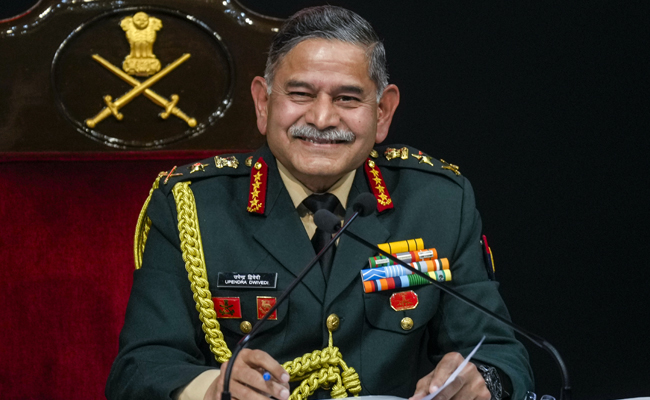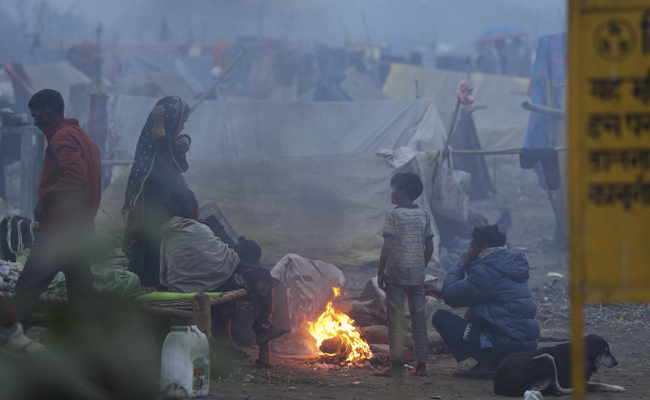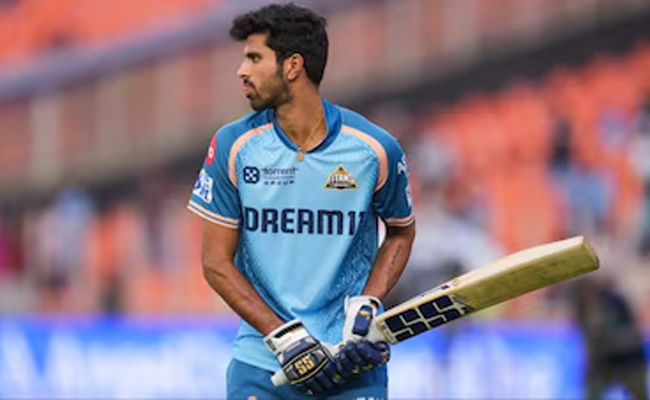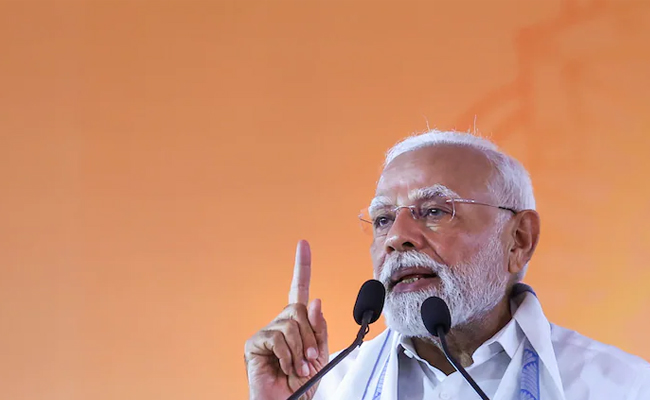New Delhi, Aug 12: Ahead of Independence Day, the Rashtriya Swayamsevak Sangh (RSS) on Friday changed profile pictures of its social media accounts to the national tricolour from its traditional saffron flag.
As the country is celebrating the 'Azadi Ka Amrit Mahotsav' to mark 75 years of India's independence, Prime Minister Narendra Modi had urged people to put the 'tiranga' (tricolour) as the profile picture of their social media accounts between August 2 and 15.
The RSS, the political fountainhead of the ruling BJP, has been criticised by the Congress and other Opposition over its stand on the national flag.
In an obvious reference to the RSS, Congress general secretary Jairam Ramesh asked earlier this month if the organisation that did not hoist the national flag at its headquarters in Nagpur for 52 years would comply with the prime minister's message to make the 'tiranga' the profile picture of social media accounts.
On Friday, RSS publicity department co-incharge Narender Thakur said the Sangh has been celebrating Independence Day at all its offices by hoisting the national flag.
The Sangh changed its profile picture on the social media to the national flag from its organisational flag.
He further said RSS workers were actively participating in the 'Har Ghar Tiranga' campaign.
The central government has urged people to hoist or display the national flag from their homes during August 13-15 as part of its 'Har Ghar Tiranga' programme.
Earlier, RSS publicity department head Sunil Ambekar had said that such things should not be politicised.
The RSS has already extended its support to 'Har Ghar Tiranga' and 'Azadi ka Amrit Mahotsav' programmes. The Sangh had in July appealed for full support and participation of the people and swayamsevaks in the programmes to be organised by the government, private bodies and Sangh-related organisations, Ambekar had said.
Let the Truth be known. If you read VB and like VB, please be a VB Supporter and Help us deliver the Truth to one and all.
Jaipur (PTI): Chief of Army Staff General Upendra Dwivedi on Wednesday said the Army was actively integrating its veterans into the country's security framework and nation-building efforts, while expanding welfare, healthcare and resettlement initiatives for ex-servicemen and their families.
Addressing an event to mark Armed Forces Veterans Day, he said ex-servicemen contributed to India's security, governance, industry and social development well beyond active service.
"Whenever the nation has called, our veterans have stood firmly with the country under all circumstances," General Dwivedi said and described it as a reflection of their "deeply ingrained sense of national duty and responsibility".
Armed Forces Veterans' Day is celebrated on January 14 every year to recognise the service rendered by the first Commander-in-Chief of the Armed Forces, Field Marshal K M Cariappa, who retired on this day in 1953.
Highlighting the Army's expanding welfare ecosystem, General Dwivedi said that Project NAMAN, launched in August 2024 to provide a dedicated support system for defence pensioners and their families, has reached a major milestone.
"On the occasion of this Army Day, the 100th NAMAN centre is being inaugurated," he said, adding that the aim is to establish nearly 200 such centres by January next year, including in remote locations.
The Chief of Army Staff said the Army views its personnel, veterans and families as one large unit. "I consider the armed forces to be a strong family of nearly 1.25 crore members," he said, referring to serving soldiers, veterans and dependents.
Stressing the growing contribution of ex-servicemen in strategic planning, he said veterans were being systematically engaged through initiatives such as Shaurya Sampravah.
"Whether it is strategic brainstorming, wargaming, red-teaming or operational planning, your contributions exceeded expectations," he said, referring to veterans' involvement during Operation Sindoor.
The Army chief also highlighted resettlement and employment efforts, noting that more than 17,000 veterans were provided jobs this year alone through the Army Welfare Placement Organisation, taking the cumulative figure to over 1.5 lakh.
Calling on the veterans to remain actively engaged with society, the Army chief said, "Your experience, skill and dedication will continue to benefit the country in the years ahead."
While economic strength shapes a nation's growth, "military strength ultimately forms the foundation of its outcomes", he said.

